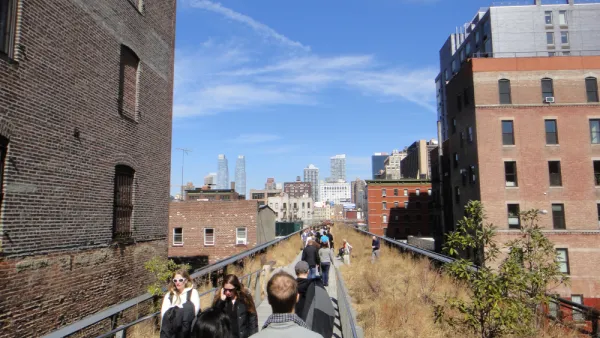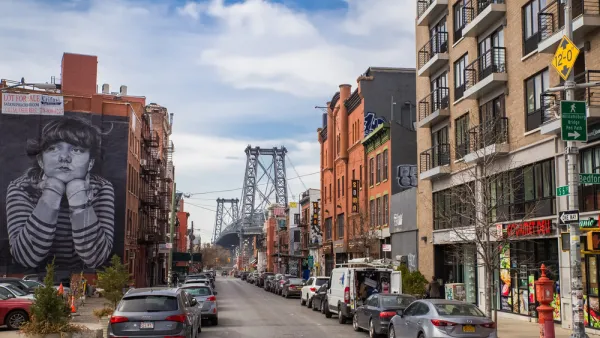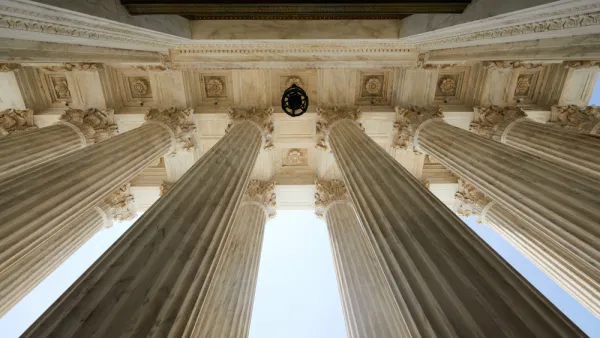A brief by the Cato Institute describes historic preservation laws as arbitrary and ambiguous. A case before the Supreme Court could decide on either side of the issue.

Nick Zaiac shares news of a new research brief from the Cato Institute that argues for consistency between the historic preservation rules of major American cities. According to Zaiac and the Cato Institute, preservation laws tend to be ambiguous and arbitrary as a result of "a difference in the ways various circuit courts interpret historic preservation." That is, "[t]he nation is split between areas governed by property-owner-friendly rules (the Third and Seventh Circuit Courts of Appeals), areas governed by regulator-friendly rules (the First, Second, Fourth, Sixth, Eighth, Tenth, and Eleventh Circuit Courts of Appeals), and areas where courts have not ruled (the Ninth and D.C. Circuit Courts of Appeals)."
The Cato Institute's brief supports the side of Stahl in a case currently before the Supreme Court, Stahl York Avenue Co., LLC. v City of New York and New York Landmarks Preservation Commission, in "[seeking] to iron out these legal ambiguities, and make the laws of the Third and Seventh circuit courts applicable nationwide."
FULL STORY: The Cato Institute Goes After Arbitrary Historic Preservation Laws

Analysis: Cybertruck Fatality Rate Far Exceeds That of Ford Pinto
The Tesla Cybertruck was recalled seven times last year.

National Parks Layoffs Will Cause Communities to Lose Billions
Thousands of essential park workers were laid off this week, just before the busy spring break season.

Retro-silient?: America’s First “Eco-burb,” The Woodlands Turns 50
A master-planned community north of Houston offers lessons on green infrastructure and resilient design, but falls short of its founder’s lofty affordability and walkability goals.

Test News Post 1
This is a summary

Analysis: Cybertruck Fatality Rate Far Exceeds That of Ford Pinto
The Tesla Cybertruck was recalled seven times last year.

Test News Headline 46
Test for the image on the front page.
Urban Design for Planners 1: Software Tools
This six-course series explores essential urban design concepts using open source software and equips planners with the tools they need to participate fully in the urban design process.
Planning for Universal Design
Learn the tools for implementing Universal Design in planning regulations.
EMC Planning Group, Inc.
Planetizen
Planetizen
Mpact (formerly Rail~Volution)
Great Falls Development Authority, Inc.
HUDs Office of Policy Development and Research
NYU Wagner Graduate School of Public Service




























